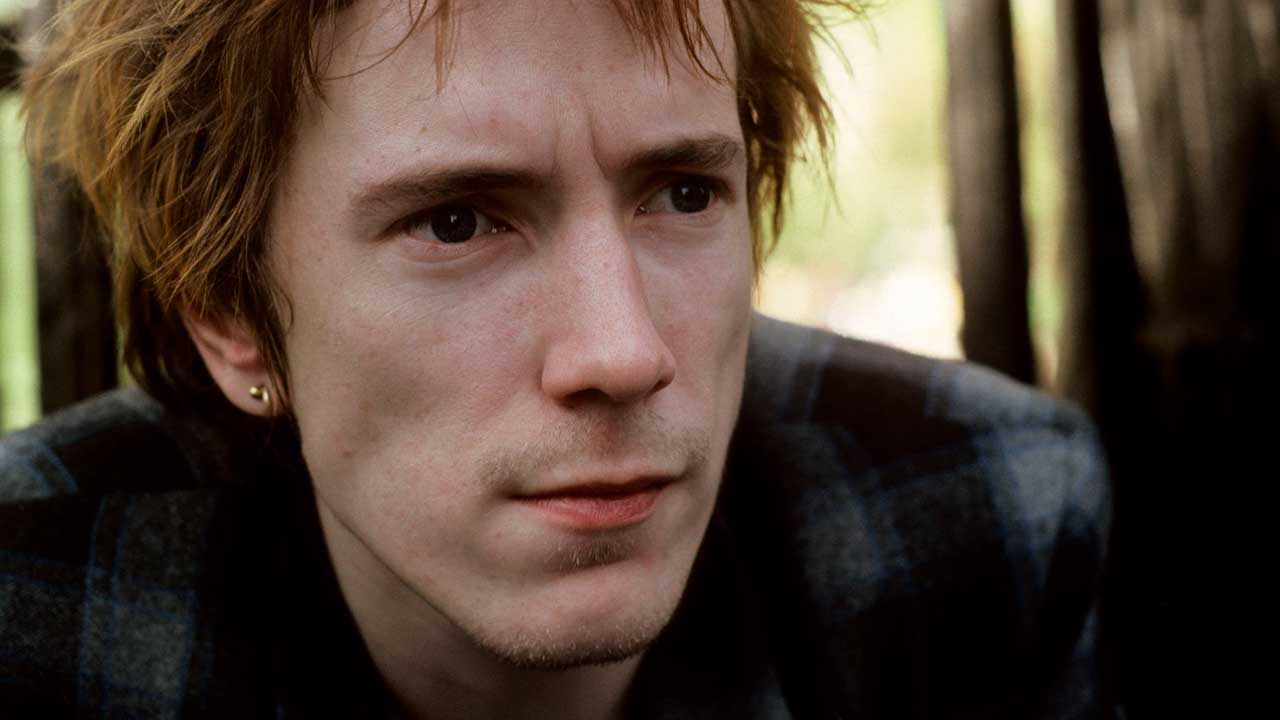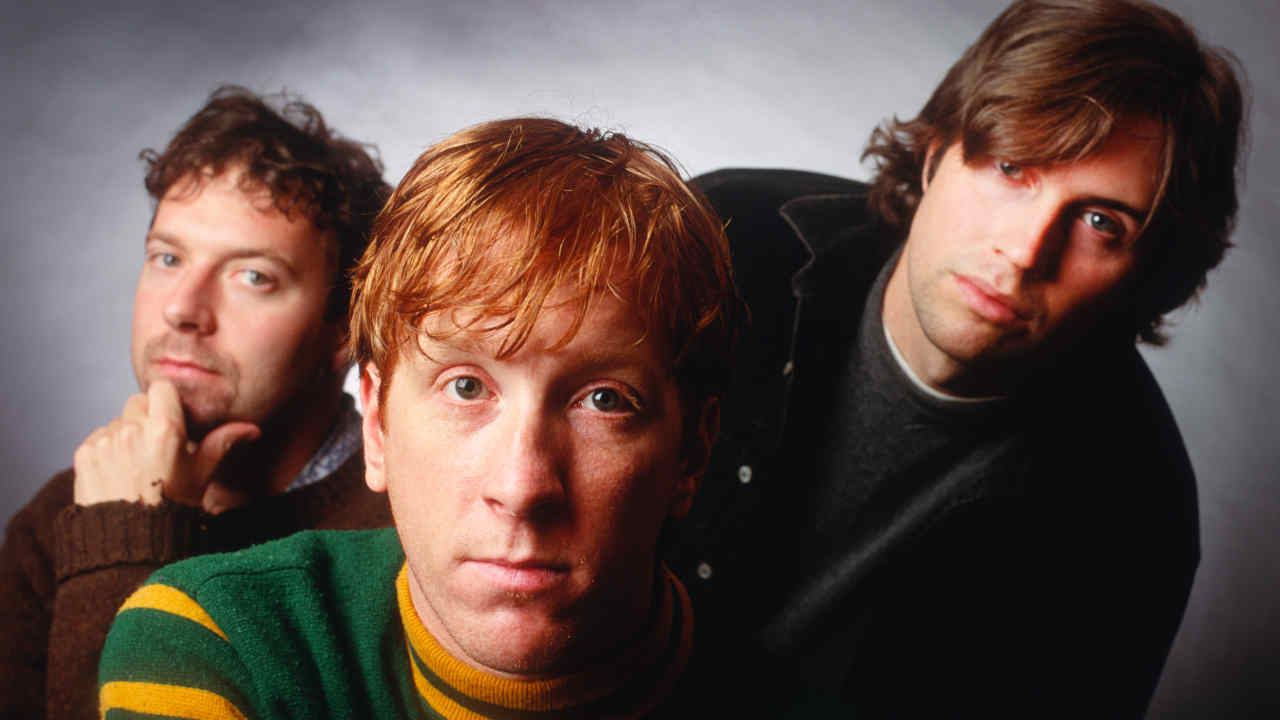"I knew what each of my friends was capable of, but I didn't know how that would blend together." How John Lydon left the trainwreck of the Sex Pistols behind with a trailblazing statement of intent
Johnny Rotten became John Lydon and the dense punk sound became spacious dub for his new band PiL’s first real statement of intent

Select the newsletters you’d like to receive. Then, add your email to sign up.
You are now subscribed
Your newsletter sign-up was successful
Want to add more newsletters?

Every Friday
Louder
Louder’s weekly newsletter is jam-packed with the team’s personal highlights from the last seven days, including features, breaking news, reviews and tons of juicy exclusives from the world of alternative music.

Every Friday
Classic Rock
The Classic Rock newsletter is an essential read for the discerning rock fan. Every week we bring you the news, reviews and the very best features and interviews from our extensive archive. Written by rock fans for rock fans.

Every Friday
Metal Hammer
For the last four decades Metal Hammer has been the world’s greatest metal magazine. Created by metalheads for metalheads, ‘Hammer takes you behind the scenes, closer to the action, and nearer to the bands that you love the most.

Every Friday
Prog
The Prog newsletter brings you the very best of Prog Magazine and our website, every Friday. We'll deliver you the very latest news from the Prog universe, informative features and archive material from Prog’s impressive vault.
Following a cultural phenomenon like the Sex Pistols was always going to be a big ask. The Sex Pistols weren’t simply a band – they’d been adopted by both media and mainstream (friends and foes alike) as the focal point of an entire movement, an attitude, a mode of dress, a way of life. As the most obvious and articulate of the Pistols, their vocalist and lyricist, Johnny Rotten, pretty much exemplified punk. So when he left the band in January ’78, with the words: “Ever get the feeling you’ve been cheated?” punk’s foot soldiers (largely unimpressed by Malcolm McLaren’s choice of successor: tiresome nihilistic smack catastrophe Sid Vicious) looked to their faltering scene’s departing prime mover for musical direction.
Readopting the surname Lydon, the erstwhile Rotten – having cleansed his musical palate with a trip to Jamaica, talent-spotting for Virgin’s reggae imprint Front Line – assembled his new troops for his next assault on prevailing sonic conservatism: Public Image Ltd.
The first song written for the band boasted an uncompromising Lydon lyric; a bold statement of self-determination, a message as much to his identikit punk audience as to his doubting detractors that John Lydon’s Rotten past was behind him. It was allied to a driving, dub-deep Jah Wobble bass riff. Where punk had been dense, this was spacious. Its sound was post-punk and its name was Public Image.
“Public Image began at the very first rehearsal we did at the Elephant & Castle,” remembers Lydon. “Wobble was desperately trying to learn to play bass and he was doing really good at it too.”
“Public Image was the first bass line I came up with,” says Wobble. “I wrote it in my squat. I’d broken up the furniture and burned it because it was freezing cold, and I ended up with just a mattress and headboard. I had a Music Man bass copy with a very high, awkward action. I’d very quickly sold the amp and the lead that I had with it for beer money, so I had to lean it against the headboard to get a sound. When I went to play with PiL I got a black Fender Precision and it was like going from a Ford Anglia with a very high clutch to a well-tuned Ford Capri."
PiL’s original line-up was completed by former Clash guitarist Keith Levene and Canadian drummer Jim Walker.
“Keith was an excellent guitarist,” recalls Lydon, “but bitterly resented any kind of form, format or structure. Jim was a stunning drummer and could understand half beats without even thinking about it, naturally occurring differences in tempos, so that line-up just landed perfect for me.”
Sign up below to get the latest from Classic Rock, plus exclusive special offers, direct to your inbox!
“I came up with a name for the band, the Carnivorous Butterflies, and wasn’t mad on Public Image,” says Wobble. “It seemed a bit one-dimensional. I didn’t give a fuck what the words were really, I just wanted the song to come into being, but I actually really liked them. It was always really exciting waiting for John to come up with the lyrics, because during that period, from 1975 when the Pistols started to about 1982, the stuff he was writing was really special.”
“The words of Public Image just flowed,” says Lydon. “It happens, not all the time, but sometimes, you’re putting a song together and words just pop out automatically, like they’re supposed to be there. And that’s how it was with Public Image. The lyric was really apt too, because we were fighting off the Sex Pistols nonsense, with a lot of people telling me that I’d sold out and God-knows what.
“They were accusing me of becoming a pop star, when the very thing I’d done was not become a pop star. I moved as far away from the cosseted Johnny Rotten-isms as I could and made life very difficult for myself, working with unknown people on unknown music. If Public Image is a manifesto, it’s not deliberate. I don’t like the word ‘manifesto’, I suppose.”
The recording of Public Image, as the band’s debut single, marked the first time the self-produced line-up had worked together in a studio, so had Lydon already planned the sound that he wanted to capture on record?
“No. I knew what each of my friends was capable of, but I didn’t know how that would blend together. I didn’t know what was going to happen, really. My biggest worry was that I was going to end up doing pieces on the piano that they’d then have to follow, but luckily we took PiL a completely different way.
“It was fantastic, and it opened up all manner of vocal patterns to me, which, if I’d tried to keep it in a Pistol-y format, wouldn’t have happened, and I wouldn’t have developed myself. Public Image singing was a completely different way of singing. It wasn’t deliberate, it just happened that way. There was so much space within which you could sing, whereas in the Pistols the sound and production was always so dense. We loved space – that was our big thing then, space. It’s not what you leave in, it’s what you take out. That way the listener can create their own melodies. It shape-shifts and it’s a fantastic thing to have on a record.”
Public Image was a tentative first step, but PiL rapidly developed into one of the most influential bands of their era, producing Metal Box the following year.
“Public Image was song-like,” Wobble says of its orthodox structure in comparison to PiL’s later circular groove-based work on Metal Box. “There is a repetitious pattern, but there are choruses, even a middle eight of sorts. It’s a song you can read from left to right. That first album has Bachian pop songs, whereas Metal Box is a vertical construction, like a Rothko painting – it’s got a weight that comes down on you. PiL were like the abstract expressionists, and those Metal Box recordings are like big, abstract paintings.”
This feature originally appeared in Classic Rock 232, published in January 2017.

Classic Rock’s Reviews Editor for the last 20 years, Ian stapled his first fanzine in 1977. Since misspending his youth by way of ‘research’ his work has also appeared in such publications as Metal Hammer, Prog, NME, Uncut, Kerrang!, VOX, The Face, The Guardian, Total Guitar, Guitarist, Electronic Sound, Record Collector and across the internet. Permanently buried under mountains of recorded media, ears ringing from a lifetime of gigs, he enjoys nothing more than recreationally throttling a guitar and following a baptism of punk fire has played in bands for 45 years, releasing recordings via Esoteric Antenna and Cleopatra Records.
You must confirm your public display name before commenting
Please logout and then login again, you will then be prompted to enter your display name.

